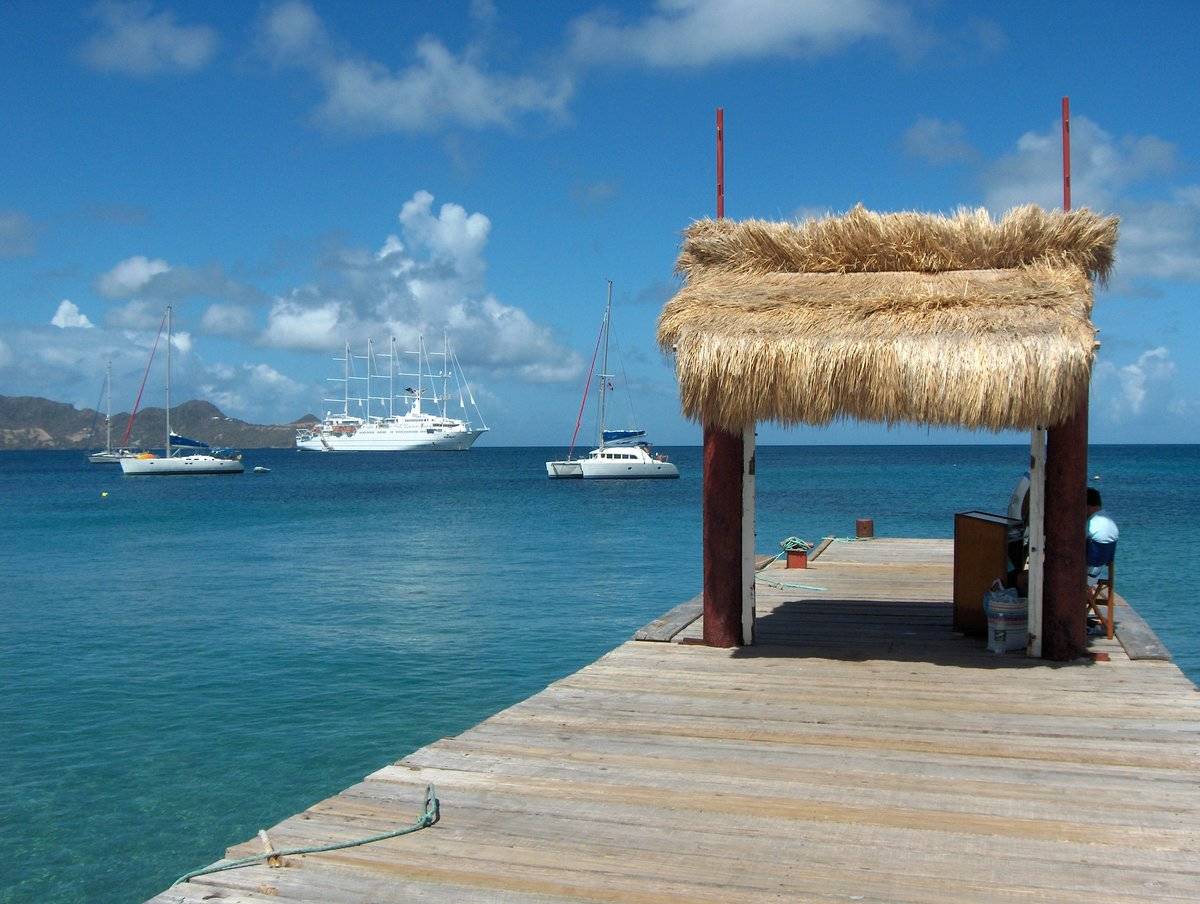Chartering a boat, especially when on holiday, can be an extremely fun way to create amazing memories. However, have you ever wondered about bareboat charter requirements and what they are? Do you know what requirements you need before chartering a boat? Well, if you have, this article will enlighten you on that, telling you everything you need to know before you can charter a boat.
What is an ICC License?
An ICC (International Certificate of Competence) Licence is also called an International Certificate for the Operation of Pleasure Crafts. It is required by several, mostly European, countries if you want to be allowed to operate any form of pleasure craft such as yachts non-commercially within the country.
It applies to either inland or coastal waters. It is only issued to people who have completed specific national boating licenses, or people who have passed the required examinations proving the required level of competency.
Basically, if you have an ICC, it means that you are qualified enough to meet the UNEC Europe Inland Water Committee Resolution 40, or the UNECE IWC Res 40. It is valid for 5 years.
How Do You Obtain an ICC?
As long as you can competently sail a yacht, you can easily get an ICC. An ICC is granted by the RYA. To get one, you need to prove that:
1. You have the required skillset and are sufficiently qualified
2. Your nationality entitles you to an ICC
To prove that you have the required skillset, meaning you are knowledgeable enough to charter a yacht in waters abroad, you will have to apply to a recognized RYA training center to be assessed. Once you pass your assessment, you can now apply for an ICC.
Once you qualify, you will be required to pay the fee, fill out a form, and submit your passport size photo for consideration. Be sure to write your name on the reverse of the photo. Normally, the entire application process will take about 14 days. However, you can fast track it to just two days by paying an additional fee.
Even if you only intend to use inland waterways, you will still need an ICC before you can be allowed to do so. In such a situation, you will need to first take the online ICC CEVNI test and pass it before you can be issued with an ICC for inland waterways.
An ICC is valid for 5 years, after which it has to be renewed.

What Skills Do You Need to Get an ICC?
To get an ICC, you must prove that you are able to competently handle a yacht or boat, and demonstrate sufficient knowledge of pilotage, navigation and safety procedures, and regulations for the prevention of collisions at sea.
This can be done by taking an exam on a boat, which takes about 6 hours to complete. If you want to get an ICC for a sailing boat with an engine, you will need to take exams for both power and sail boating.
You can obtain your ICC in two ways: either automatically if you already have an IYT, or by getting endorsed by an approved school and get issued an ICC.
Who Can Get an ICC?
If your country is a signatory of the UNECE IWC Resolution 40, you can get an ICC from your nation’s issuing authority. If your country is not a signatory, you can get your ICC through the IYT.
Also, if you live in a country that is not a signatory, but you are a citizen of a signatory country, you will have to show proof that you are a resident in your non-signatory country then get the ICC from the IYT.
Some documents that you can use to provide this proof include utility bills, property tax bills, telephone bills, and insurance bills.
You can be issued an ICC as long as:
1. You are 16 years old or older
2. You are physically and mentally fit to operate a boat. Good vision and hearing are a must.
3. You have passed the written and practical exams or have shown some proof of competency
What Qualifications Charter Brokers Require
In addition to the ICC, in recent years, some
charter brokers have started asking for more proof of nautical qualification. This is totally understandable because handing over a $400,000 boat to an inexperienced person for a few weeks is quite a risk to take.
Since the ICC is only a simple proof of competency, you need to take additional courses and show that you are fully capable of handling such vessels.
The best way to do this is to hold an IYT license in addition to the ICC. This way, your qualifications will immediately be accepted by all charter brokers.

What Qualifications Charter Companies Require
Before chartering a boat, you need to convince the company, the operator and the crew that you can handle the boat well. Different companies often have different sets of qualifications, but generally, if you have enough experience and qualifications, you should be able to easily charter a yacht.
You can easily get the proof of qualification you need from an endorsed training institution. Before a training institution can award you an ICC, it must be approved by IYT Worldwide and allowed to offer the ICC to its students. The school will then be audited and required to be in good standing with the ICC if they want to offer the ICC.
ICC and Vessel Sizes
Sometimes, depending on the country, the ICC may be specific to the type or size of the vessel, and also the cruising area. The endorsements can be:
1. Any power-driven boat from 10 meters to 24 meters: Power 24M
2. Any power-driven boat 10 meters and lower: Power 10M
3. Sailboat to 24 M: Both 24M and Power 10M
4. For personal watercraft: PWC
5. Coastal Passages: Coastal waters
6. European Inland and Coastal Waterways: Coastal and inland – Candidates must also complete a CEVNI exam
If you are unsure about anything, you need to make inquiries at the charter company you intend to get the boat from first before making any commitments. Establish any legal, contractual or insurance requirements to ensure that you do not get into any trouble with the law.
What Countries Require an ICC?
Most European Countries and several Mediterranean countries require an ICC before you can charter a boat. Generally, if a country is a UNECE IWC Resolution 40 signatory, it requires an ICC. Here is a list of them:
Austria, Belarus, Belgium, Bulgaria, Croatia, Czech Republic, Finland, France, Germany, Hungary, Ireland, Italy, Latvia, Lithuania, Luxembourg, Netherlands, Norway, Poland, Romania, Serbia, Slovakia, South Africa, Switzerland, Ukraine, UK
A few important points to note here:
1. Countries like Latvia and the UK have allowed their citizens to be issued with ICCs from the IYT. If you are a citizen or resident of these countries, you do not have to go to your country’s issuing body.
2. Since South Africa also signed the UNECE IWC Resolution 40, it is also covered by the same rules within its borders, and you need an ICC to operate a boat there.
3. An ICC issued by the IYT comes approved by both the British Maritime and Coastguard Agency and Transport Canada. If you have an IYT ICC, you can upgrade to ICC Canadian version by taking a short class and exam.
4. The ICC is not required is Scandinavia and most of Northern Europe.
Conclusion
For many years, the ICC was enough to prove that you are sufficiently qualified to operate a boat. Although this is slowly changing, and some
charter companies no longer accept only an ICC as proof of your competence, it is still a necessary requirement. Also, the additional requirements often only apply when you want to charter the boat for a period of more than one week.
If you want to get a boat for more than a week, you will need an ICC and an IYT, or an equivalent qualification from the company’s list of approved requirements. This only applies to some charter companies and not all of them, so be sure to check with your company to ensure that you meet all their qualifications.
What about you? Do you know the requirements to bareboat a charter? Let me know in the comments below
Daniella has been passionate about travel, the sea, and nature for many years. As a child, she frequently traveled throughout the Mediterranean and continued with her journeys throughout her adult life.
Her experiences have created the desire within her to share her love for traveling with other passionate and adventurers who want to discover beautiful horizons and new cultures.





Here in San Diego, we see dozens of new advertisements in AirBNB and VRBO offering to rent boats for overnight stays, “Bed and Breakfast.” No cruise is included.
The Harbor Patrol says this activity requires that the owner hold a USCG Captain’s certificate.
But the boat owners think they are legal if they don’t take the passengers away from the pier. Are they? Is their liability insurance good in such a situation?
HI Larry,
If a vessel is rented such as through an Air BnB / VRBO etc. and it does not leave the dock, there will be no need for a Captains license. If the vessel “will” be leaving the dock there are some variables that come into play.
If the charter is what’s called a “Bare-Boat Charter and the person operating has enough boating experience the company can elect to have him operate or ask that he hire a captain. When there are several passengers that will be paying or more than 12 passengers, it will need to have a licensed captain.
If not a Bare Boat and just a regular charter, leaving the dock with paying passengers it will also need to have a licensed captain. Sorry if this is confusing and hopefully answered your question. Please feel free to contact anytime or call the USCG as they can also answer your q’s.
This sounds wonderful! I just have one question. I am not sure what a bareboat charter is or what bare boating is. Sounds like you take the boat out by yourself? Yet, you can hire a skipper. Is this correct? I think I like the idea of hiring a chartered yacht where everything is taken care of me. What is the main difference?
Hi Matt,
With a bareboat charter, you take the whole responsibility of the boat and the passengers. You sail wherever and whenever you want:). With a crewed yacht, you have a professional team on board that takes care of the navigation and the guests. Bareboating is only for people who possess a skipper license. A skippered yacht will be the best option for you. He/she navigates the boat and brings you to beautiful destinations; they know well the region and the best places.
If you need any help, please don’t hesitate to contact me. I’ll be more than happy to assist.
Thank you for the comment and wish you a lovely day.